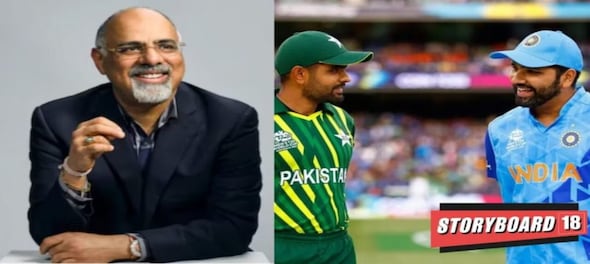
We are also looking at curating these experiences that are unique from an Indian consumer’s point of view and bringing them to life is what we are hoping will create priceless moments for consumers, then we will amplify storymaking as opposed to advertising which is storytelling.
Mastercard didn't renew the deal with the BCCI this year. What led to this decision?
We look at all the opportunities on the horizon and what will help advance the business and what will give us the biggest competitive advantage. Last year, we had a terrific experience, the returns on investment in cricket have been really solid. That gave us the impetus to continue in the game of cricket.
In the category of cricket this year, the World Cup is by far the single biggest opportunity. It’s not like we are walking away from an opportunity but we are walking towards the best opportunity at this point.
Like many other companies, we don’t have an unlimited budget from a marketing perspective. We have to see how best we can allocate it to different assets or different properties and then make the best out of them.
Given that Mastercard curates and dials up experiences in entertainment and travel, what sort of learnings have you taken in those areas and applied to sport?
In golf for years, we have been doing something called the best seats in the house. With this, people really feel special in a stadium or arena. We spoke with ICC, and managed to get some best seats in the house. We are actually going to put sofas just behind the perimeter board, and a few consumers will watch the game up close.
Consumers love getting discounts, particularly those which other people don’t get. As a Mastercard consumer, you get a 20 percent discount on the merchandise sold on the ICC website, that’s a big tangible benefit from the consumer’s point of view. Whether they use it or not, the fact that it is there, makes them feel very special.
Thirdly, we try to leverage skills and capabilities we have in other parts of the Mastercard ecosystem and then bring them to life. For some of the sports, there is a voting mechanism that happens. A lot of that voting happens by bots and not human beings. And also people vote multiple times, so they try to game the system. This year we partnered with Major League Baseball (MLB). We created a methodology where we authenticate all voting. So, the real outcome is very genuine as opposed to the bots stuffing the ballots.
We have seen a digital explosion happening when it comes to cricket streaming. IPL, for instance, was streamed free on JioCinema and there were record breaking numbers. As a marketer, what is your view on consumption of cricket?
Depending on how consumers are interacting with media either in terms of consumption or interaction or engagement, advertisers and marketers will come into the picture and they strategize around it. As an industry, one of the biggest challenges we have is the incredible clutter that is available. There are many studies around it – anywhere between 3000 and 10,000 commercial messages are bombarding every single consumer on an average day, and the consumer’s span of attention is sinking and now it is less than 8 seconds which is apparently less than that of a goldfish. In that kind of a situation, as a marketer, the first question to myself would be if I am able to cut through the clutter and go through that narrow window of attention for the consumer and make an impact on the consumer’s mind, feelings and heart.
I also have to consider the number of people I am reaching. Reach is a big challenge these days if you are a scale player as opposed to a niche player. You might have fantastic content but if audience size is not significant enough, it’s not going to help. Therefore, scale creation is going to be important. So, are people consuming that content at scale? If yes, then it's a relevant platform for us.
As a marketer, I want to know if my money is being spent the right way. The digital ecosystem is the biggest bank for my buck. Here the measurability is the best. How that ecosystem is evolving is very critical.
Many startup brands pumped money into cricket sponsorships. Then came the 'funding winter' and we saw some pull-back. As a marketer, what’s your advice for newer brands launching into high-impact properties like major cricket tournaments?
As a new brand, you need to be very clear on what your brand strategy is and what characteristics it should have. It should be sustainable and continuous. You cannot just have a flash in the pan, show it on a massive event, then disappear and go into hiding. It’s not going to work. It’s not only about attracting attention. You get a lot of eyeballs for a mega event like this, but what you say and how you say when you get the attention is very critical. Whether you are a small or large company, ROI measurement is critical. It is even more important for start-ups as funds flow is critical for them. They need to be extra cautious in terms of ROI. Don’t do it for novelty or vanity, that is a short term joy that the marketing person gets but it doesn’t drive business.



